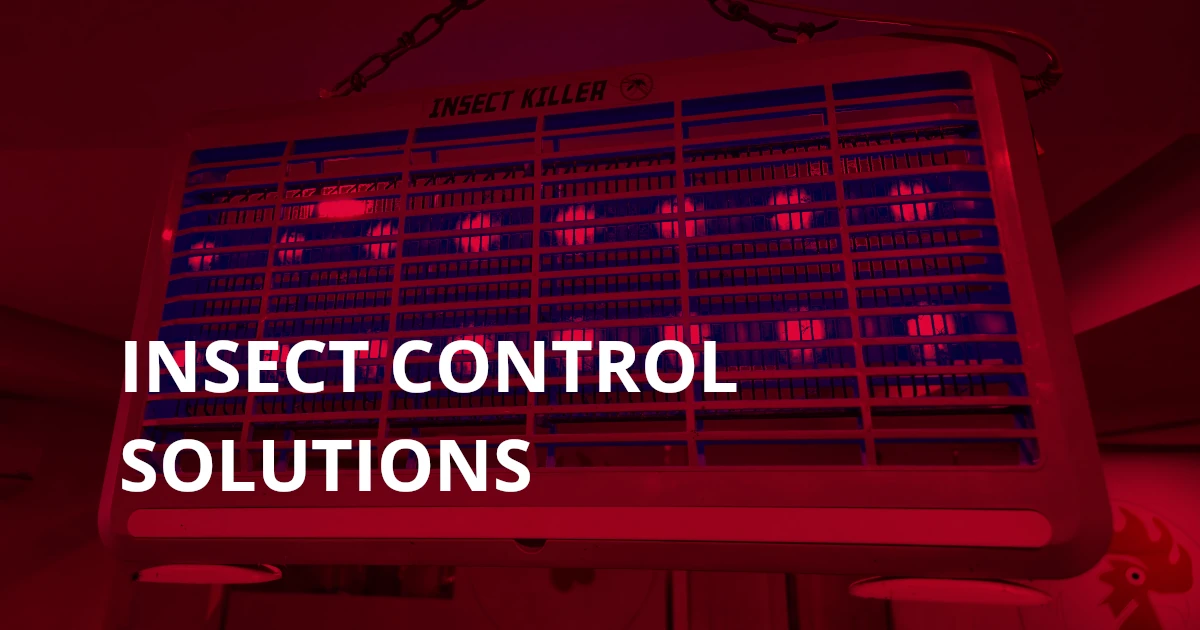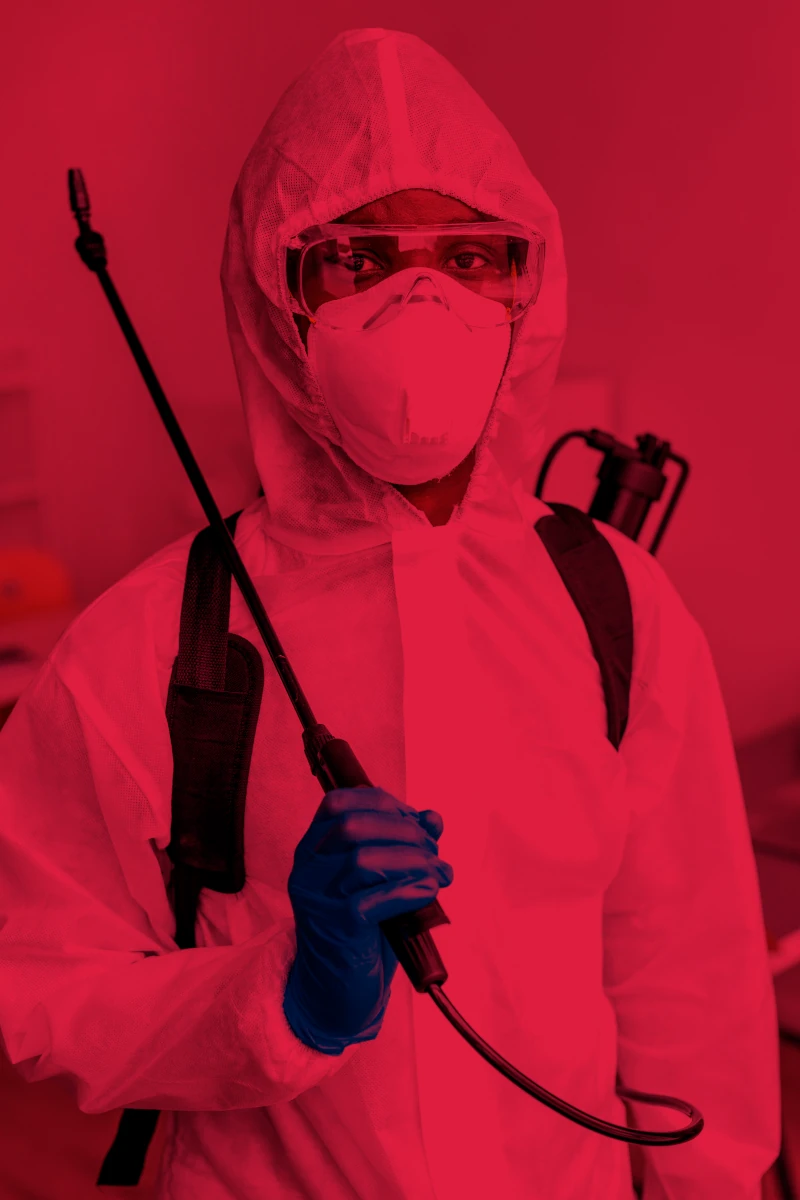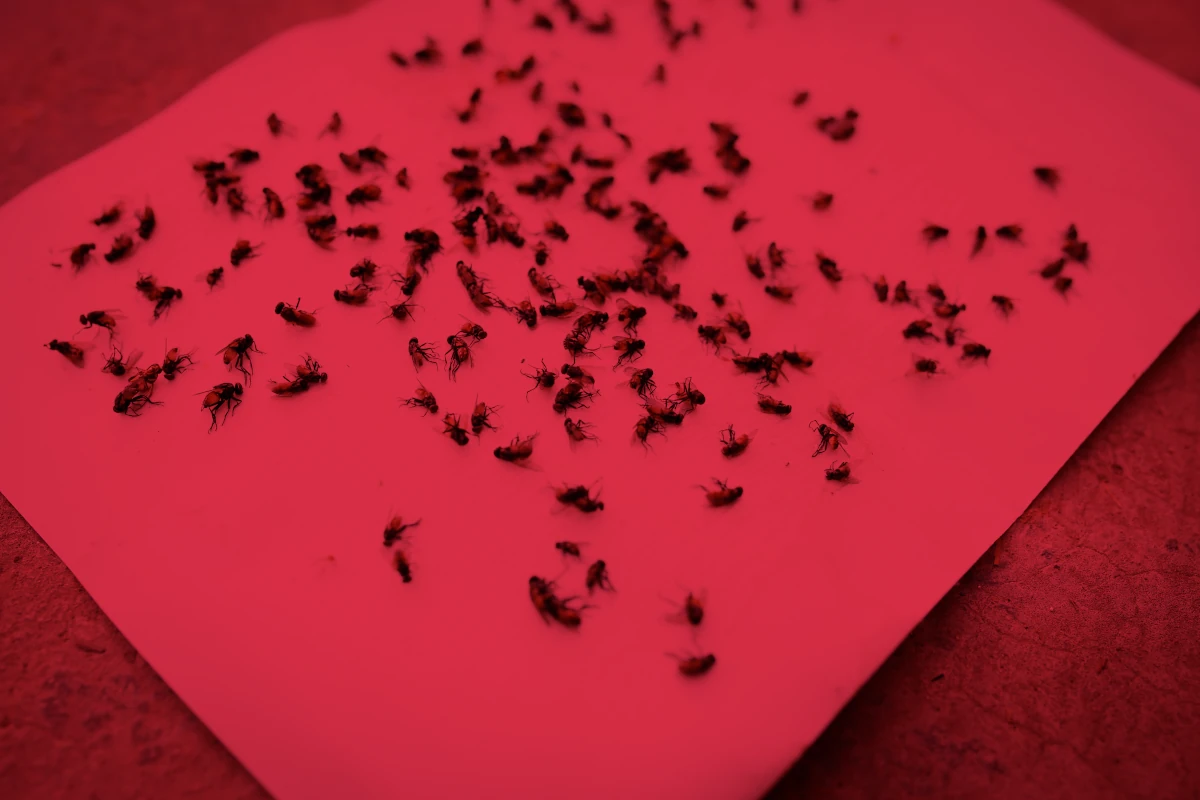Insect Control Solutions Canada

Insects are often seen as little more than a nuisance, but their presence in our homes and workplaces can carry far-reaching consequences. While an occasional fly or ant might seem harmless, infestations can quickly escalate, affecting health, hygiene, and overall comfort. Kitchens, bathrooms, bedrooms, and children’s play areas are particularly vulnerable, as these spaces provide food, moisture, and shelter—ideal conditions for pests to thrive. Beyond the immediate discomfort of seeing insects in these areas, their presence introduces serious health risks, including contamination of food and surfaces, the spread of bacteria and allergens, and potential triggers for asthma or allergic reactions.
The implications extend beyond the home. In public spaces and commercial environments such as restaurants, schools, offices, and healthcare facilities, insect infestations can compromise safety standards, disrupt operations, and damage reputations. These environments must adhere to strict health and safety regulations, meaning that uncontrolled pest activity is not merely inconvenient—it can carry legal consequences.
This article explores the dangers posed by insect infestations in both residential and commercial settings, highlights the legal responsibilities that businesses face, and presents effective, professional solutions to maintain safe, hygienic, and insect-free environments. By understanding the risks and addressing them proactively, homeowners and businesses alike can protect their health, their property, and their reputation.
Dangers of Insect Infestation in Homes
Insect infestations in the home go far beyond mere annoyance. Certain areas, such as kitchens, bathrooms, bedrooms, and children’s playrooms, are particularly susceptible due to the combination of warmth, moisture, and readily available food sources. In these spaces, insects can quickly establish colonies, making them difficult to eradicate once an infestation has taken hold.
The health risks associated with household pests are significant. Insects such as cockroaches, flies, and ants can carry bacteria and pathogens that contaminate surfaces and food, potentially causing illnesses such as salmonella, E. coli infections, and food poisoning. Additionally, insect droppings, shed skin, and body parts can exacerbate allergies and trigger asthma attacks, particularly in children and vulnerable individuals. Mosquitoes and other biting insects may also transmit diseases, creating further risk.
Beyond direct health concerns, infestations can lead to property damage and a general decline in living conditions. Wood-boring insects or termites, for example, compromise structural integrity, while ants or silverfish can damage books, fabrics, and stored food. Psychologically, living with visible pests can create stress, anxiety, and a persistent sense of discomfort, affecting overall quality of life.
Recognizing the dangers that insects pose in domestic environments underscores the importance of proactive control measures. Effective pest management not only protects physical health and property but also preserves the comfort and safety of the home, ensuring a clean and hygienic space for all household members, including children.
Dangers of Insect Infestation in Public Spaces & Businesses
Insects in public and commercial spaces present a unique set of challenges that extend beyond the discomfort they cause. Restaurants, offices, schools, hospitals, and other public service facilities are particularly vulnerable because they accommodate high volumes of people and often involve food preparation, healthcare, or child care. In these environments, even a small infestation can quickly escalate into a serious health and safety concern.
The risks are multifaceted. Flying and crawling insects can contaminate surfaces, utensils, and food, spreading bacteria and pathogens that jeopardize public health. In educational settings, children’s exposure to pests can lead to allergic reactions or asthma flare-ups, while in healthcare facilities, the presence of insects can compromise sterile environments and infection control protocols. For businesses, infestations can disrupt daily operations, reduce productivity, and undermine employee and customer confidence.
Beyond health and operational impacts, insect infestations can also severely damage reputation. Patrons or clients who encounter visible pests are less likely to return, and negative reviews or media exposure can have lasting consequences. In sectors such as food service and healthcare, failure to maintain pest-free facilities can even result in legal repercussions, including fines or forced closures, as these businesses are subject to stringent health and safety regulations.
Understanding these risks highlights the critical importance of proactive insect management in public and commercial spaces. Effective control measures protect not only human health but also organizational integrity, ensuring safe, hygienic, and legally compliant environments for all occupants.
Legal Requirements for Businesses
In Canada the obligation to control insects in commercial and public settings is not optional — it sits at the intersection of federal, provincial and local rules designed to protect public health, the food supply, workers and the built environment. Multiple authorities and legal instruments apply, so businesses must treat pest control as a compliance issue as well as an operational one.
At the federal level, two agencies play the most important roles. Health Canada’s Pest Management Regulatory Agency (PMRA) regulates pest-control products. For food businesses and certain processors, the Canadian Food Inspection Agency (CFIA) enforces food-safety requirements that explicitly include pest prevention and control as part of preventive controls and sanitary design. The CFIA’s guidance makes clear that pests can contaminate food and packaging and that facilities must design storage, handling and facility maintenance to minimize that risk; failure to prevent contamination can trigger investigations and recalls.
Provincial and municipal public-health laws layer on additional, locally enforced obligations. For example, Ontario’s Food Premises Regulation requires that every food premise be protected against the entry of pests and be kept free of conditions that lead to harbouring or breeding. Equivalent provincial or territorial food and public-health regulations and municipal bylaws impose similar duties across Canada; local public-health inspectors routinely check for evidence of infestations during inspections. Non-compliance can lead to orders, fines or even temporary closure of the premises.

Workplace health and safety laws also require employers to address hazards that affect employee health and safety. Pests and the chemicals used to control them can both be workplace hazards; guidance from occupational health agencies stresses that pest control must be carried out in a way that protects workers (through training, hazard assessment, ventilation and safe-work procedures) and that appropriate controls and training are documented. Federally regulated workplaces are covered by the Canada Labour Code and related inspection regimes.
Because the regulatory framework is layered, there are several practical legal consequences for businesses that fail to manage pests properly: public-health enforcement actions (inspection orders, fines, mandatory corrective work), civil liability if customers or employees are harmed, and supply-chain consequences such as product recalls — which CFIA oversees and can mandate when contaminated product reaches the marketplace. The CFIA’s recall and investigation processes are routinely used when contamination (including insect contamination) is found in packaged or distributed food.
Finally, pesticide use and applicator qualifications are governed provincially, with a national standard for pesticide education and many provinces requiring certification, licensing or operator permits for commercial applicators. This means that businesses that hire external pest-control companies should check that their contractors are certified and that any in-house use of pest-control products follows both federal label requirements and provincial licensing rules. Examples of provincial certification programs exist in Ontario and Alberta, among others.
In short: controlling insects is a compliance necessity. Proactive, documented pest-management programs — using registered products correctly, working with certified applicators, keeping records of inspections and treatments, and integrating pest prevention into facility design and sanitation practices — are the best way for businesses to meet regulatory obligations, avoid enforcement actions or recalls, and protect both customers and staff.
Our Insect Control Solutions
Effective insect control requires a combination of proactive monitoring, preventive measures, and targeted elimination strategies. Our solutions are designed to meet the needs of both residential and commercial environments, providing safe, efficient, and reliable pest management. Each product is carefully selected to address specific types of infestations while complying with Canadian health and safety regulations.
Insect Detectors and Discs
Insect detectors and discs are an essential tool for early detection and monitoring of pest activity. These devices attract insects using pheromones or other attractants, allowing for the identification of problem areas before infestations become severe. By pinpointing hotspots, they enable timely interventions, reducing the need for widespread chemical treatments and minimizing disruption to occupants.
UV Lamps
UV lamps are highly effective for managing flying insects such as flies and mosquitoes. These devices use ultraviolet light to attract insects, which are then trapped or electrocuted. UV lamps are particularly useful in food preparation areas, restaurants, and healthcare facilities, where maintaining a hygienic, insect-free environment is critical. They offer a non-toxic solution that complements other pest control measures.
Sticky Traps
Sticky traps provide a simple yet effective method for capturing crawling and flying insects. They can be discreetly placed in corners, along baseboards, or near entry points to continuously monitor and reduce pest populations. Sticky traps are non-toxic and safe for use in households, schools, and offices, making them an ideal choice for sensitive environments such as children’s playrooms and healthcare facilities.
Foggers and Sprayers
Foggers and sprayers allow for rapid treatment of larger infestations. They disperse insecticides or other pest control solutions evenly across targeted areas, penetrating cracks, crevices, and hidden spaces where insects may hide. These tools are suitable for warehouses, commercial kitchens, and other expansive environments. When used according to manufacturer instructions and regulatory guidelines, they provide fast, efficient, and thorough pest elimination.
Each of these solutions can be tailored to the specific needs of your home or business, providing a comprehensive approach that combines prevention, monitoring, and active control. Together, they form a robust defense against insect infestations, ensuring environments remain safe, hygienic, and compliant with health standards.

Shipping insect control solutions all across Canada
Our insect control solutions are designed not only for effectiveness but also for accessibility. No matter where you are in Canada, we ensure that our products reach your home, business, or facility promptly and reliably. From small residential properties to large commercial operations, our country-wide distribution network guarantees that every client can benefit from professional-grade pest control.
We proudly serve locations across the nation, including the 20 most populated Canadian cities: Toronto, Montreal, Calgary, Ottawa, Edmonton, Mississauga, Winnipeg, Vancouver, Brampton, Hamilton, Quebec City, Surrey, Laval, Halifax, London, Markham, Vaughan, Gatineau, Saskatoon, and Longueuil. By maintaining a reliable supply chain and nationwide shipping, we make it simple to protect your spaces from insect infestations, no matter where you are.
Insect infestations pose serious risks to health, property, and business operations, and regulatory compliance is a critical consideration for commercial facilities. Our solutions—including insect detectors and discs, UV lamps, sticky traps, and foggers and sprayers—provide comprehensive protection tailored to both residential and commercial environments. By combining effective technology, regulatory compliance, and nationwide accessibility, we help homeowners and businesses maintain safe, hygienic, and pest-free environments across Canada.


